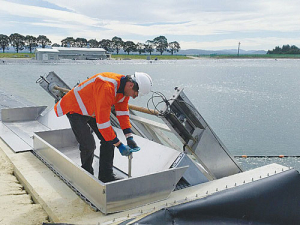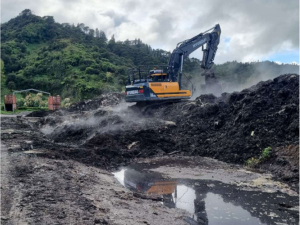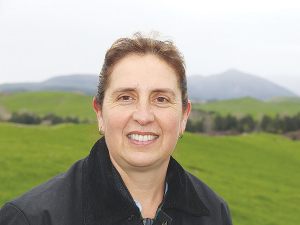Opened in 2006, the NOIC scheme takes water from the Waitaki River and serves an area of the Oamaru hinterland, south of the river. Stage one and some previous small expansions now irrigate about 15,000ha. Stage two will extend the irrigated area southwards to the Maheno, Kakanui and Herbert, and bring the total to about 25,000ha, of a total command area of 64,000ha.
The expansion was due to have started running last spring, but a major failure in a main pipeline, traced to a particular jointing component, forced the contractor McConnell Dowell to redo much of the work.
NOIC chief executive Robyn Wells told a recent Otago Chamber of Commerce irrigation forum in Dunedin the work involved reinstalling 136 joints on 86 properties and rechecking hundreds of valves. But she emphasised that McConnell Dowell was committed to putting it right.
The delay had cost NIOC about $2 million in foregone revenue, but Wells said the contract had been set up “on the basis of remedies if the contract was late. We are pursuing those remedies”.
Thirty of the 85 new offtakes and two of four new booster pump stations had been commissioned by late August, and the project was now on track for completion by the end of September, said Wells.
The delay meant that the new stage two shareholders were not getting any return on their investment, but that was offset by NOIC not charging them the usual annual fixed charge. It was also lucky for many that last spring and summer had been far wetter than typical.
“Each of them will have their individual equation on what [the delay] meant for them but of course that’s caused them some angst and concern,” said Wells.
“That’s why we’ve had the McConnell Dowell managing director and their Australian-based chief executive over here on several occasions to assure all of our shareholders they are going to follow through and deliver on this infrastructure.”
Wells said economic analysis showed that between the census years of 2006 and 2012, the scheme created significant GDP and jobs for the region, and that similar increases of 4-6% could be expected from the expansion, depending on land use and commodity prices.
“We expect it to impact positively on the economic wellbeing of the region.”
NOIC’s shareholders were allowed at most 1 share for each hectare and the average was about 1.3ha per share.
NOIC was extremely efficient in water use because the scheme was fully piped and pressurised. The scheme took water only when needed and farmers could only take 0.4L/share – a modest amount which was not actually enough in the driest years, or about one year in 10.
“We’re pretty much as efficient as we can be,” she said.
Wells emphasised NIOC’s environmental commitment, as the first irrigation company to require environmental farm plans.
“Every single one of our shareholders who have bought shares in our expansion is required to complete an environmental farm plan and then we do an assessment of where they’re going to irrigate to make sure it’s not high risk and we look at their land use as well.”
Very few, if any, of the stage two shareholders were planning to use it for dairy conversions, said Wells. Most would be taking water for drought protection and may be moving to sheep and beef finishing or dairy support, from dryland sheep or beef.
“We’ve had a couple of dairy operators who are coming off run-of-the-river irrigation and are getting some of our shares, which means they now have to come under our environmental farm plan.”


















